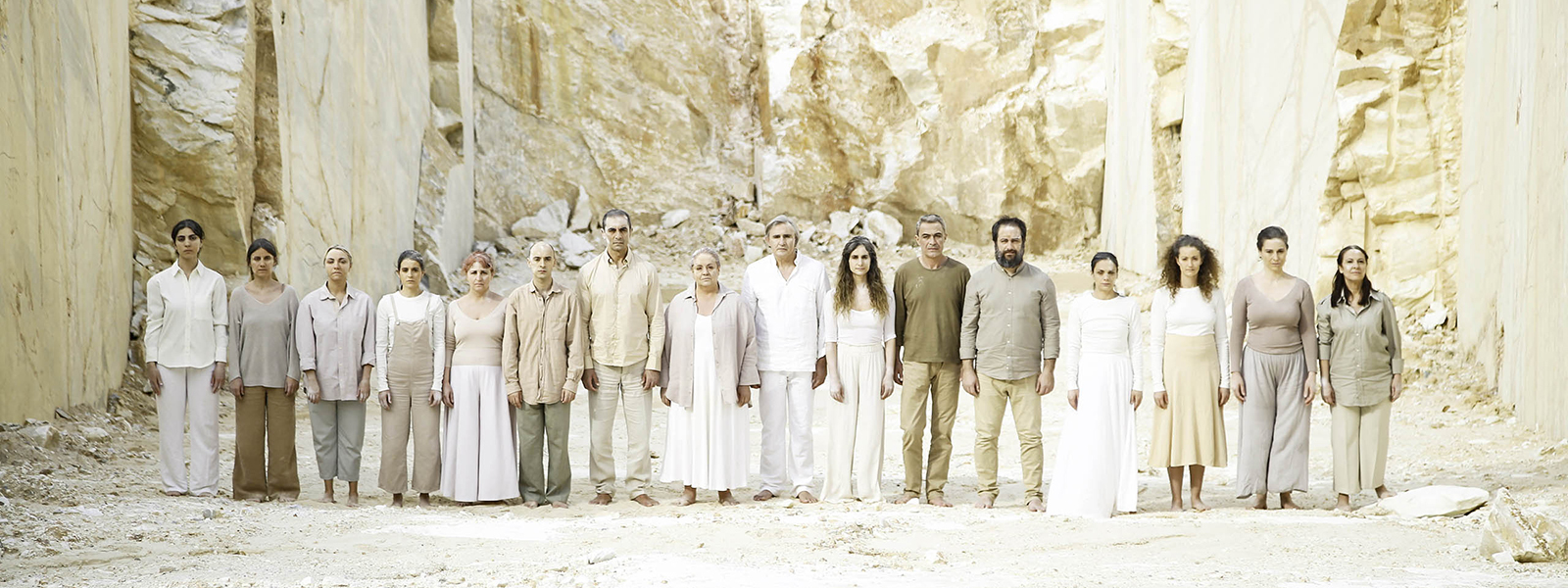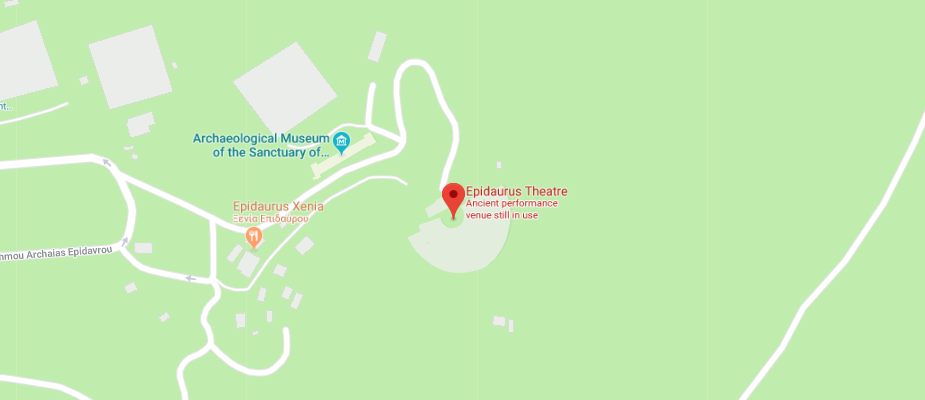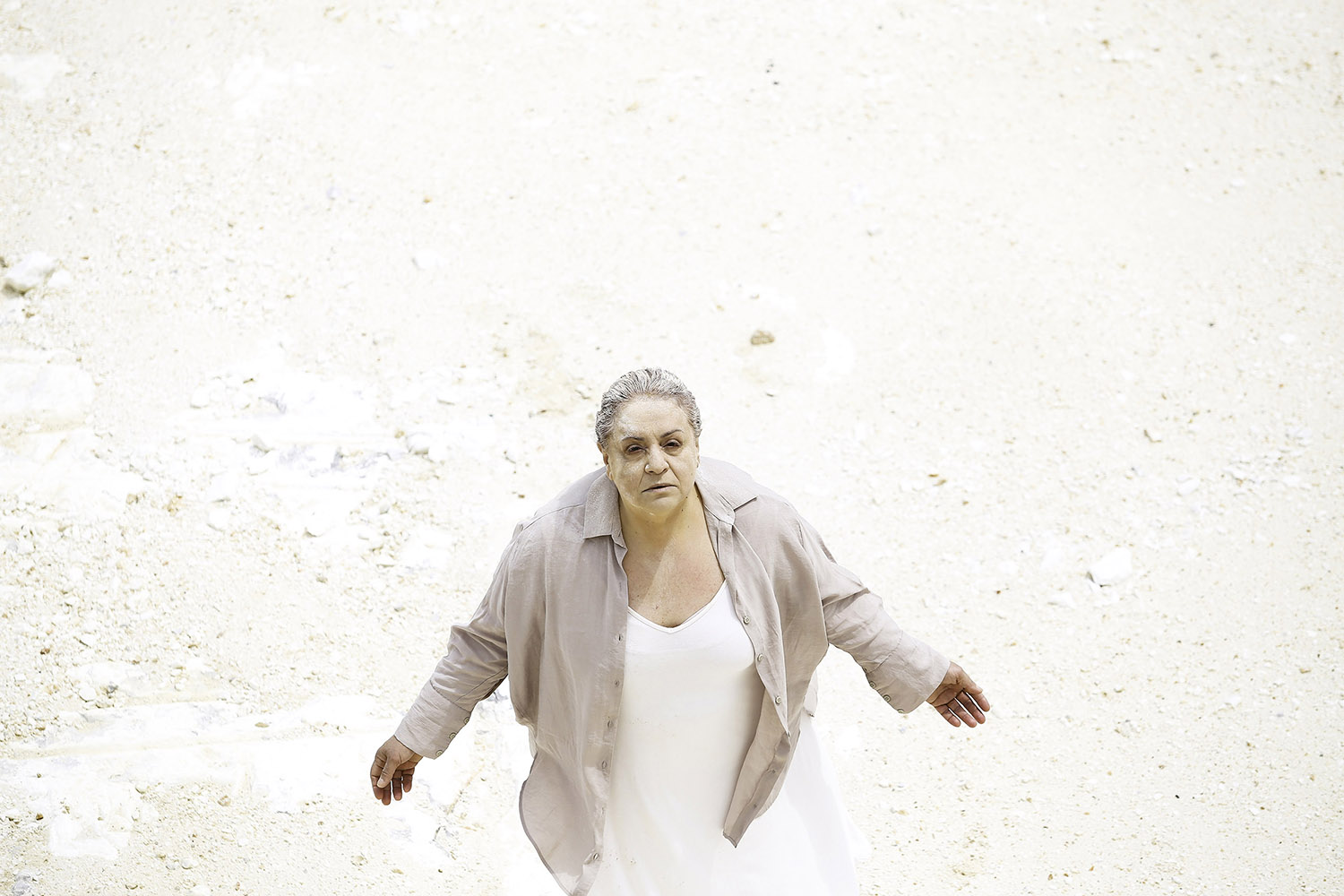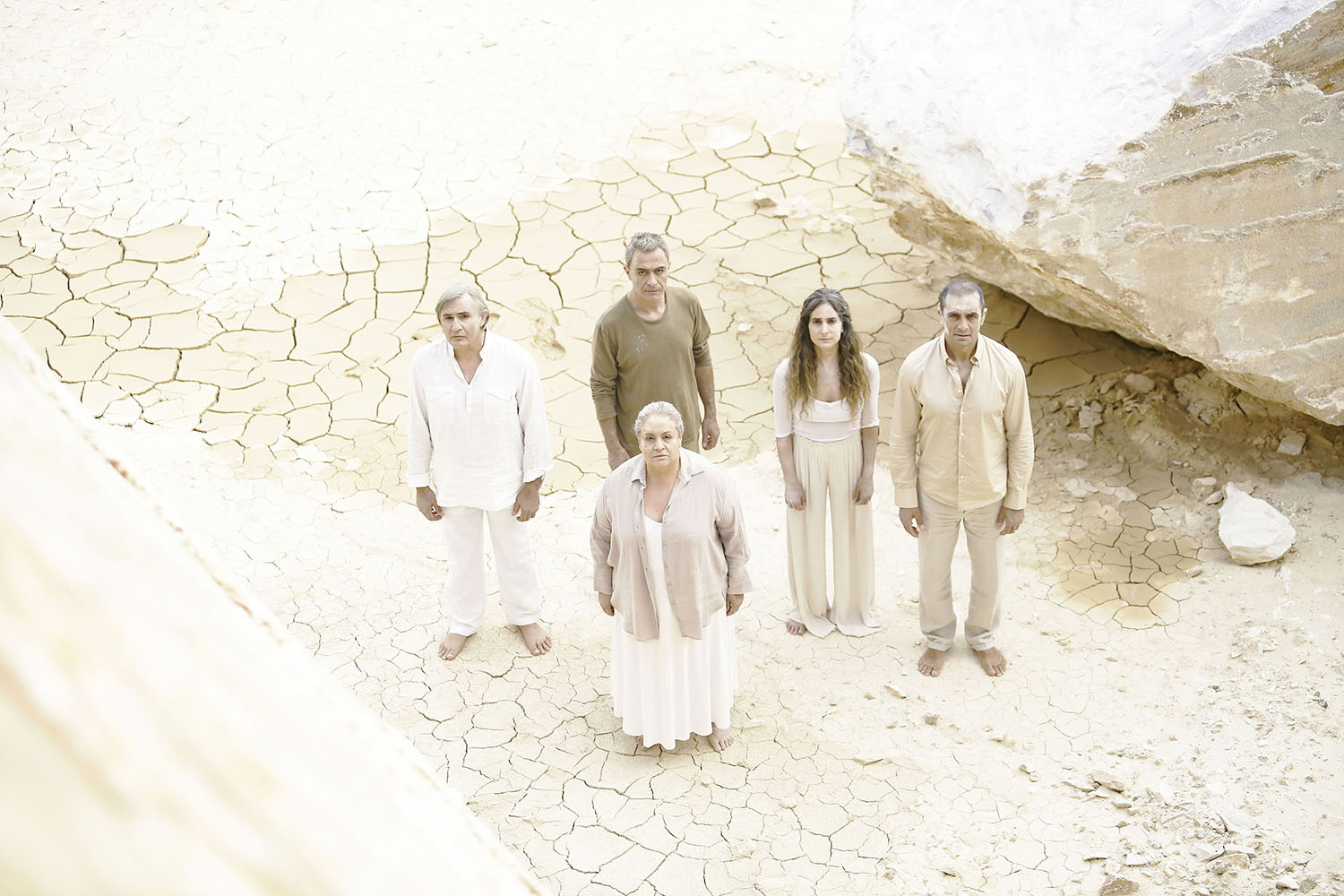Io Voulgaraki
Hecuba
by Euripides
Our screens are daily inundated with images of war, images of unspeakable violence and agony from every place in the world. The absurdity of war seemingly concerns only those who experience it; for the rest of us, it is packaged as a dry, virtual and harmless piece of information, buried amid numerous other news and disconnected from the experience of mourning. We are thus familiarized with the image and information of violence; we are trained in death yet we have unlearnt how to mourn.
In Euripides’ eponymous tragedy, Hecuba emerges as a character from a place we have all of us forgotten: the place of mourning. In the first part of the play, mourning, both individual and collective, seemingly gives birth to its metaphysics: the living and the dead are locked in a constant dialogue; an unburied boy disrupts his mother’s sleep; a girl stands on the border between life and death. In Hecuba, everything unfolds at a liminal time, after the end of the war. Nevertheless, violence is not over yet. It is precisely here, at this transitional time, where mourning-style Hecuba becomes revenge-style Hecuba, opening up a provocative dialectics with the present.
A large ensemble of brilliant actors and musicians, along with Helene Varopoulou’s new translation made especially for this performance, are the cornerstones of this endeavour.
Related Events
Ancient Theatre of Epidaurus
- 11/08 until 12/08/2023 at 21:00
all events
Opera | Theatre | Dance | Premiere | Greek Debut
all venues









